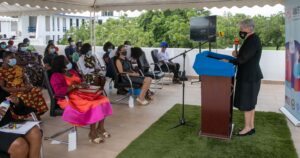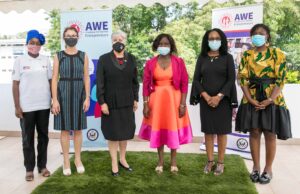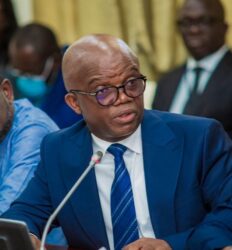The Academy for Women Entrepreneurs (AWE) programme by the United States government is providing refreshing new opportunities for growth for female entrepreneurs across the globe, as some 48 female entrepreneurs graduate from the programme.
AWE is a part of the U.S. Women’s Global Development and Prosperity Initiative, a whole-of-government effort to advance global women’s economic empowerment, established in February 2019.
Since the programme’s inception, 78 Ghanaian female entrepreneurs have completed the AWE programme. AWE was a pilot program in 2019 in 26 countries, including 10 in Africa: Ghana, Kenya, Nigeria, Rwanda, Senegal, South Africa, Tanzania, Uganda, Zambia, and Zimbabwe.

Since then, the programme has expanded to over 50 countries and has trained over 7,000 women.
AWE follows the DreamBuilder course developed by the Thunderbird School of Global Management in Arizona. This online programme provides flexibility to budding women entrepreneurs, who follow the course at their own pace, with supplemental sessions facilitated by experienced women entrepreneurs and subject matter experts in finance, marketing, and logistics.
AWE provides online education resources, fosters networks that support access to mentorships, and connects women through existing U.S. government exchange programs.
Participants from the second AWE cohort included entrepreneurs from the agricultural, food and beverage, cosmetics, personal care, and textile sectors.
Marking Global Entrepreneurship Week, the U.S. Ambassador to Ghana Stephanie S. Sullivan addressed the graduation ceremony of the U.S. Department of State’s Academy for Women Entrepreneurs (AWE) second cohort.
Hosted by the Embassy’s implementing partner, the event took place at the Young African Leaders Initiative (YALI) Regional Leadership Center located in the Ghana Institute of Management and Public Administration.
Ambassador Sullivan commended the 48 cohort members and encouraged them to remain resilient and determined.

She said “All of us here today know how much women business owners, both in the informal and formal sectors, contribute to and drive Ghana’s economic prosperity.
She observed that in addition to boosting economic growth, investing in women produces a multiplier effect because women reinvest a large portion of their income in their families and communities.










